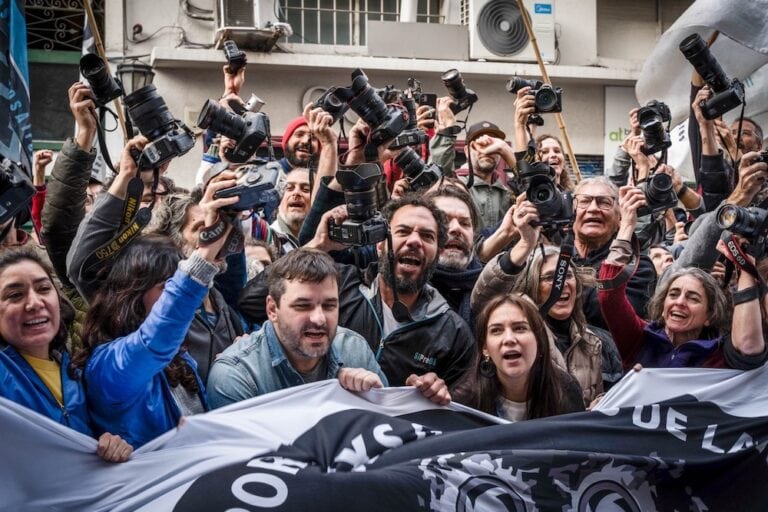(AMARC/IFEX) – AMARC is deeply worried about the decision of Héctor Acosta, a federal judge in the province of Mendoza, who ordered the cessation of broadcasts by the local relay transmitter of Canal 7 television station in the city of San Rafael. The station was only recently established thanks to the action of locals who, […]
(AMARC/IFEX) – AMARC is deeply worried about the decision of Héctor Acosta, a federal judge in the province of Mendoza, who ordered the cessation of broadcasts by the local relay transmitter of Canal 7 television station in the city of San Rafael.
The station was only recently established thanks to the action of locals who, in April 2007, submitted a letter to the government of President Néstor Kirchner, signed by 10,000 individuals, requesting its installation.
The judge’s ruling suspends the applicability of decrees 2368/2002 and 84/2005, which allow for the free and open delivery of public television services to the entire population of the country.
Decree 2368/2002 outlines the commitment of the national government to “the widespread, open and free dissemination of ideas, of culture and education to the general public”, while decree 84/2005 granted broadcasting frequency concessions to various stations retransmitting Canal 7 signals to various regions of the country’s interior, where the service would not otherwise reach.
The legal precedent cited to support the ruling derives from the Radio Broadcasting Law (Ley de Radiodifusión) that was passed during the military dictatorship, which stipulated that public media are to be considered secondary to commercial media, and that relay transmitters for the state television station could only be authorized for “reasons of national security.”
AMARC is concerned by this ruling as it favors the existence of media monopolies, a process which the OAS’s Inter-American Human Rights Commission considers to be anti-democratic and threatening to freedom of expression.
The ruling demonstrates the urgent need to reform this dictatorship-era law, as has been requested by many social and academic sectors of the country but repeatedly postponed. A more democratic law should replace it, after 24 years since the return of constitutional rule in Argentina.
AMARC is also concerned by the systematic attempts of non-state power holders to limit freedom of expression and information, by exerting pressure on different state bodies so that they will cater to their corporate interests.
In this case, the pressure was exerted by the Vila-Manzano group, owners of a media conglomerate in Mendoza that runs the Canal 6 television station. The group is clearly a direct beneficiary of the judge’s ruling, which safeguards its broadcasting monopoly in San Rafael.


